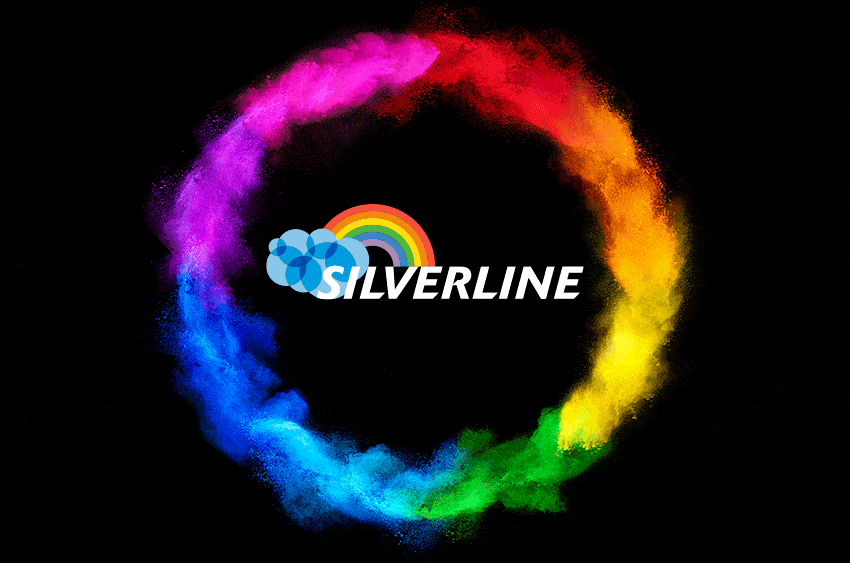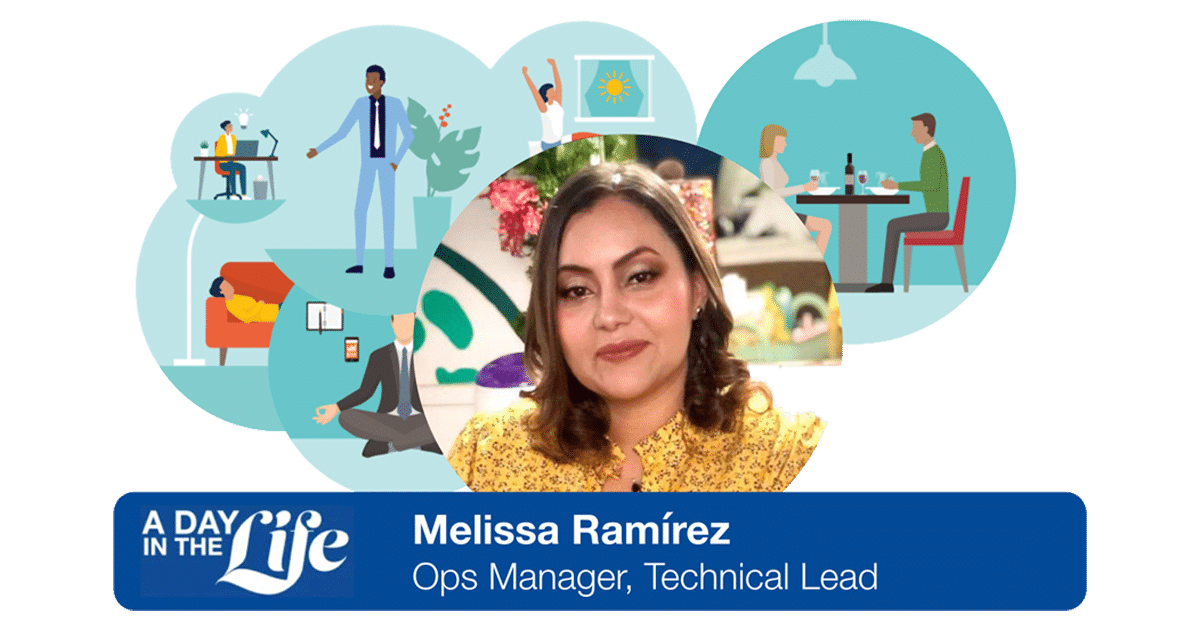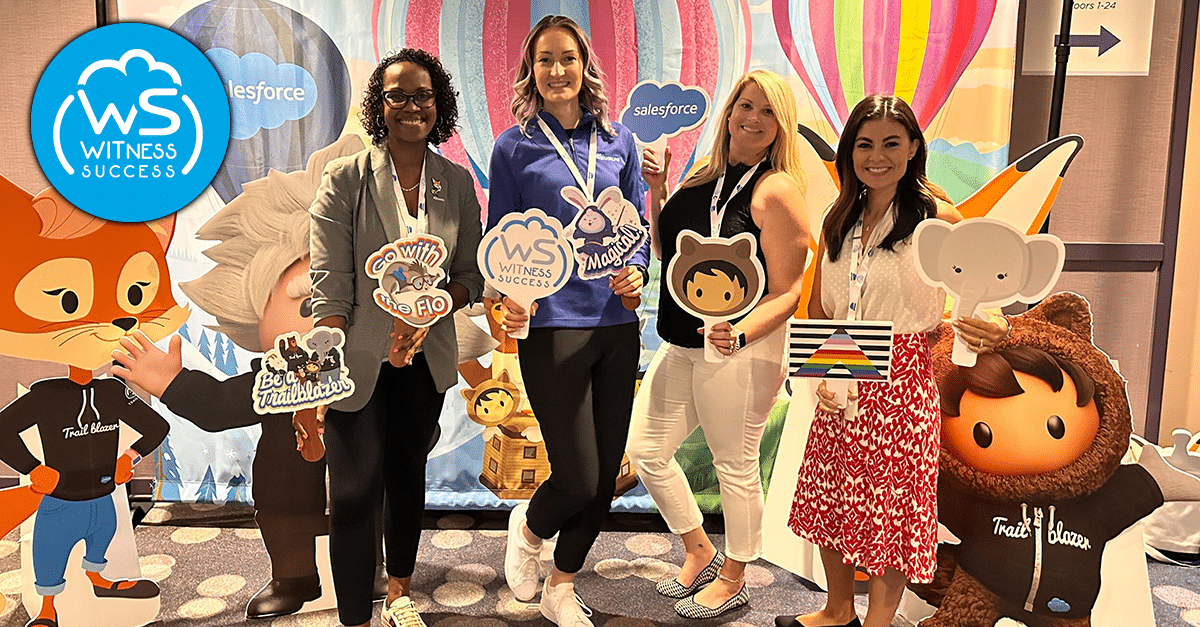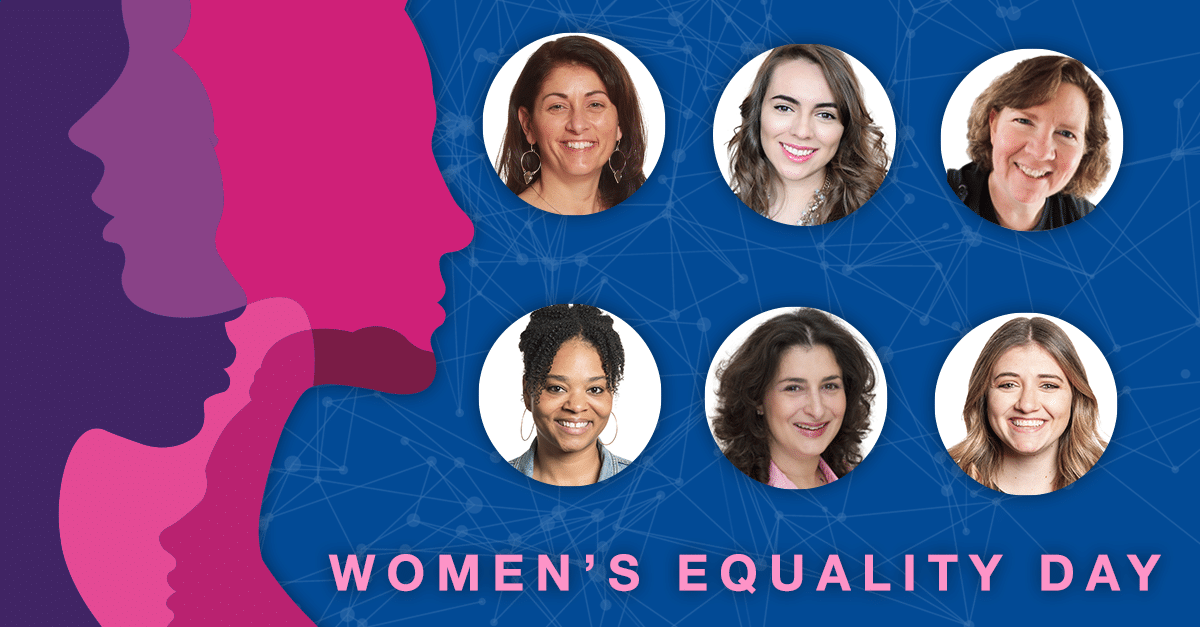On the morning of Saturday, June 28, 1969 — only 53 years ago — members of the LGBTQ+ community took to the streets after a police raid on the Stonewall Inn, a gay bar in Manhattan’s Greenwich Village. They protested for their right to live freely in a city that criminalized their existence, and the events of that morning and the ensuing days would be the spark that lit a fire for LGBTQ+ rights across the United States.
Pride Month gives us all a platform to support LGBTQ+ people with a celebration of self-affirmation, dignity, and equality. On this Pride Month, we celebrate the lives of activists like Martha P. Johnson and Sylvia Rivera, and showcase the joy, strength, and resilience of a community that deserves recognition and respect. I recently spoke to LGBTQ+ Silverliners about what Pride means to them and the ways that allies can best support the community.
What does Pride mean to you?
Kara Lawhorn, Managing Director, Financial Services Sales: To me, pride is a time to bring awareness to all of the issues the LGBTQ+ community faces, but also a time to remember all of the accomplishments and progress the community has made to date.
Dan Hardyman, Project Manager: Pride to me is the celebration of your authentic self and the ability to freely and publicly express this authenticity. Pride celebrates love in all its forms: it’s the freedom to love your chosen partner, it’s the demonstration of love and support amongst friends and family, it’s love from your community expressed through inclusion, acceptance, and equality.
Pride is also an opportunity to acknowledge the important progress that has been made towards LGBTQ+ rights and recognize the hard work and dedication of individuals who’ve risked or lost their lives or livelihoods in order to achieve this progress. It is also the acknowledgement that more action is needed to ensure the safety and fundamental equality of every individual in the LGBTQ+ community.
Michael Lepore, Creative Director: A rejection of fear. A celebration of all our similarities and of all of our differences. A sense of solidarity in the affirmation of being you…
…but this wasn’t always the case for me. Although I was out for many years and living in New York City, I still avoided the parade. I was out to my friends, colleagues at work — lots of people knew who I was. But I struggled most with telling my family and many of the people from life before living in New York City. The city offered me a cloak of anonymity. I didn’t know most people I passed on the streets in my daily life and my midwest department store fashion sense didn’t necessarily broadcast my secret to the world. My family and my past were far away and no one was the wiser, unless…
…unless I went to the Pride parade and was caught by a news crew’s camera and was broadcast all over the nighttime national news. Me, an assuming shorts and t-shirt guy actually thought that in all the pageantry, and floats, and massive groups marching that I might get outed by a news crew and then? Then my family would know. It sounds ridiculous. But that’s what fear does to us — we cling to the ridiculous and in that clinging we are paralyzed to take action and fight it.
I finally did come out to my family and with the fear of being outed gone (and with some encouragement and careful prodding from my friends) my excuses of “I’m proud, it’s just that parades are not my thing, too many people” or “I feel like it’s over the top and that’s just not who I am” just rang hollow.
I went to my first Pride parade in the late ’90s. There was an excitement in the air from all the people on the street. The weather was glorious. Sunny and clear skies, not too hot and not too humid for a New York summer. I could see many blocks down Fifth Avenue and the parade was slowly inching its way down…and the closer it got the more the crowd started to cheer and make noise. And as the first float started to approach my corner, I started crying. I was surrounded by hundreds of thousands of people all cheering and clapping. Young people. Older people. All ethnicities. Men. Women. Children. On that corner it seemed like everyone was represented. I was one of them. I cried and I cheered like I had never done before. I don’t know if I cried because for the first time in my life I felt like I was part of a community or if I cried because the fear of being myself had finally left me.
What is a particularly proud moment in your life?
DH: Something I’m particularly proud of is not necessarily a single moment in my life, but rather the culmination of events that have led me to where I’m at today. Every person in the LGBTQ+ community goes through their own individual journey of self-discovery and no journey is the same. For me, coming out was a very difficult and prolonged process. I spent more than a few years struggling with my identity and it really dimmed my light as a person. I felt I could never share myself fully, even with those closest to me. And while this process was extraordinarily challenging, I was able to take time and make space in order to come to terms with myself. Slowly I began to open up, share my full self to those around me, and finally let myself and my relationships shine.
Since coming out I’ve marched in Pride parades, volunteered and advocated for local LGBTQ+ organizations, and spoken to groups and individuals about our personal experiences. I’ve grown closer to my family, created an incredible network of supportive friends, and met the love of my life: my partner of now 7(!) years, Kale. Although I can’t point to a specific moment that makes me proud, my journey filled with pain, struggle, support from others, and eventual self-acceptance has led me to a place of incredible happiness, and I’m really proud of that!
I hope to demonstrate this pride and contribute to a culture of acceptance for those, at any stage in their lives, who need to see how much better life can be when you can live authentically as yourself.
KL: The most proud moment of my entire life is when I married my wife! But there was another proud moment for me leading up to that — the moment gay marriage was finally legalized nationwide back in June of 2015. By June of 2015 I had already been with my fiance (now wife) for 3.5 years and I had coincidentally just proposed to her one month prior, in May 2015. Same-sex marriage was already legal in California, but before same-sex marriage was legalized nationally, we were at the point where we had to “accept” that outside of our state (and other gay-friendly states), our relationship would not be recognized the same as our family or friends who were in heterosexual relationships. I can’t even describe to you how terrible of a feeling it was to know that Stacy and I’s relationship was less valid, just because we are both women. Even scarier, if Stacy and I were traveling to a state that was not accepting and one of us was hospitalized, it’s very likely the other would have been denied decision-making authority or visitation rights. Stacy is the love of my life, I knew it the second I met her, and I would have proposed a lot sooner than 3.5 years if it wasn’t for all of the unnecessary social pressure and general lack of acceptance created by gay marriage not being legalized everywere.
When same-sex marriage was legalized nationally it was the absolute best feeling in the world for us! Knowing that we could live our lives and be married and be viewed just as equally as all of our heterosexual friends. It was like a huge weight was finally lifted, and importantly, it gave us hope for the future!
We went on to get married in October of 2017 and threw an over-the-top wedding because we were so proud! We showed our friends, family, and the world that we were proud to be us! We each wore fancy white wedding dresses and our wedding has been featured over and over on various wedding websites and social media accounts. We hope we are able to inspire others!
ML: I know that my successes in my life were paved by those before me. I also know that I would not be where I am today if it were not for a couple of “angels” who specifically took me under their wings and helped me and guided me when I needed it most. In all the chaos and turmoil of my identity search, they saw the potential I had, and they reaffirmed me and helped lift me up by giving me chances they thought I deserved even if I didn’t see the chance myself. I have never forgotten their kindness and when I have had the opportunity to do the same for others, I have taken it. I am proud to have been their mentor, their friend, and their sounding board. I am proud that the kindness that was shown to me is being paid forward. One of my mentees (now a dear friend) called me the other day and started telling me how he was helping a new college grad find work at their company, and I realized that the kindness was still being paid forward. That kinda made me grin with pride.
What advice would you give to allies to help them support the community?
ML: Well, first I’d like to thank them. But the advice I would give them is basic: “Don’t stop.” Our world is filled with so much noise these days that solitary voices get lost in the buzz, and we have a long way to go still. We need every voice. We need all your support. And we need you with us on this journey because we can’t do it alone. Equality is not tolerance. Equality is not acceptance. Equality cannot hide behind laws that prevent us from talking about the very fundamental thing that makes us different. So, please, “Don’t stop,” because we need you now more than ever.
KL: Every individual has their own journey understanding what it means to support the LGBTQ+ community, whether you’re LGBTQ+ or not.
From my perspective, a good general rule of thumb is to not assume anything about anyone based on the way they look, talk or present themselves. Instead talk neutrally to get to know them (depending on the situation). Being an Ally means you will have to be brave enough to confront your own prejudices and unconscious bias. The prejudice can be subtle and can show up in ways like this:
- I can’t tell you how many times during casual small talk that people have complimented my wedding rings and then will just ask me “what does your husband do?” When this happens, it’s way more embarrassing for them than for me when I respond with the fact that I have a wife and then proceed to talk about what she does. Instead you could ask “what does your spouse do?” Being aware of what you are saying and how you are saying it is a truly powerful thing.
- Stacy and I have been assumed to be mother and daughter, sisters or friends more times that I can possibly count — and in SO many situations. On airplanes, in hospitals, in Costco, you name it — it has happened to us. Here’s an example: Sometimes when checking into a hotel they see we have one king bed and we get asked if we’d like to switch to a room with two beds. It would have spared the embarrassment for both of us if they had just simply confirmed our king bed reservation with us.
- On our wedding day, as we were taking photos in public, a passerby said with joy “Oh wow! Two weddings! How fun!” You can imagine how that made us feel.
Some other things you can do to support the community are:
- Speak up and defend your LGBTQ+ friends and colleagues from discrimination when you see it happening. This could be as simple as speaking up when someone makes an anti-LGBTQ+ joke and letting them know that it offends you.
- Truly believe that all people deserve to be treated with the same respect regardless of their race, ethnicity, gender or gender identity, age, religious affiliation, or sexual orientation — and take action if you see that this is not the case.
- Embrace pronouns. Showcase yours and never assume what someone else’s pronouns are, simply ask.
- Be open-minded. Be a listener. Educate yourself — there are resources out there to highlight the issues the community faces.
DH: I absolutely agree about the importance of not making assumptions as the first rule of thumb of allyship. LGBTQ+ people don’t look or act a particular way and someone’s current or previous partner(s) does not define their identity. You never know when someone close to you could be looking for support, and not making these types of assumptions will give them the space they need to be their authentic self and open up to you in their own time.
Additionally, I think the most effective allies are those who make themselves available to listen. It sounds pretty obvious, but in order to learn you first need to be willing and open to actively listen. Listen to your friends’ personal stories and ask questions respectfully — everyone is on their own journey so let them tell you what and when they’re ready.
Finally, don’t panic about making a mistake! There will inevitably be a time where we all make an incorrect assumption or unintentionally use a wrong pronoun when referring to someone, but don’t let the fear of making a mistake stop you from engaging entirely. If and when we mess up, the best thing we can do is acknowledge the mistake, apologize, and learn from it going forward.
Check out our Careers page if you’d like to join Silverline’s team.




